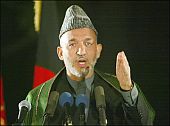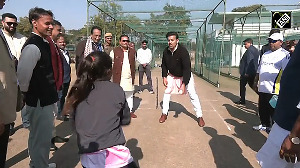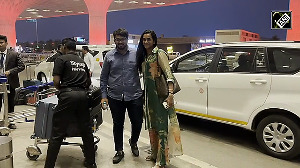 European Union monitors believe that about one-third of the votes cast for Afghanistan President Hamid Karzai in the August 20 election are suspicious and should be examined for fraud.
European Union monitors believe that about one-third of the votes cast for Afghanistan President Hamid Karzai in the August 20 election are suspicious and should be examined for fraud.
In a news conference just hours before the pre-audited results were released, the European Union monitors said they believed that the tally included 1.5 million suspicious ballots, or more than one of every four votes cast.
Dimitra Ioannou, one of the Union's election monitors, said 1.1 million suspicious votes belonged to Karzai and 300,000 to Abdullah.
European officials emphasised that those numbers did not necessarily represent fraudulent votes, but votes that needed to be investigated.
Karzai, who is vying for a second five-year term, won 54.6 per cent of the vote, enough to avoid a run-off election, according to the tally released by the country's national election commission. His closest challenger, the former Foreign Minister Abdullah Abdullah, won 27.8 per cent.
The country's United Nations-backed Electoral Complaints Commission has ordered recounts and forensic examinations of ballot boxes in 10 per cent of polling places.
That would involve at least 15 per cent, and possibly a far higher proportion, of reported votes. The complaints commission, led by a Canadian, is the ultimate arbiter of election results.
Some Western officials say that if all fraudulent ballots were discarded, Karzai's tally would drop below 50 per cent, forcing him into a run-off against Abdullah.
There are growing fears amongst United States and European officials that the fraud and a drawn-out recount or runoff risks derailing American and NATO efforts to stabilise the country by hurting the Afghan government's already low credibility among its people.
Evidence of widespread electoral fraud has further dimmed support for the war against the Taliban.
Karzai's campaign has lashed out against the announcement as 'partial and irresponsible', setting the Afghan leader against representatives of countries his government depends on for military and financial support against a raging insurgency that controls much of the countryside.







 © 2025 Rediff.com -
© 2025 Rediff.com -